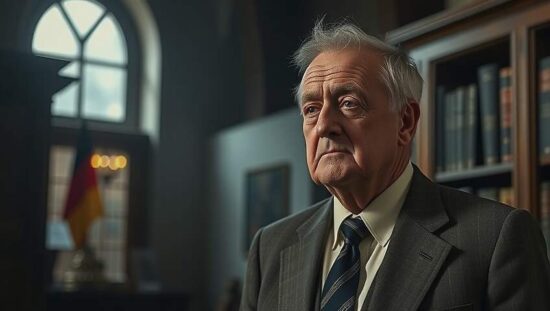In a recent article in the German magazine “Spiegel”, former Chancellor’s Chief of Staff Peter Altmaier has sharply criticized the handling of the Nazi past by the country’s first post-war Chancellor, Konrad Adenauer. Altmaier, a prominent figure in the Christian Democratic Union, argues that Adenauer, in power from 1949 to 1963, rarely addressed the darker aspects of Germany’s history and instead sought to draw a line under the country’s Nazi past.
Altmaier paints a disturbing picture of the post-war period, noting that by 1951, a significant number of former Nazi Party members had returned to government and administrative positions and Nazi criminals were able to lead a life of relative impunity, unimpeded by the justice system or public scrutiny. Many turned a blind eye and old comrades and accomplices helped to conceal and suppress the truth, Altmaier claims. It was not until the mid-1960s, with the Auschwitz trials, that a breakthrough was achieved.
Altmaier suggests that Adenauer’s primary concern was to utilize the time remaining to him to build democracy, security and prosperity and to do so by ignoring any personal culpability or involvement in the pre-1945 era. Demands for accountability and truth had long been viewed as unprecedented and scandalous, he writes.
As a former top aide to Chancellor Angela Merkel, Altmaier, who headed the Chancellor’s Office from 2013 to 2018, is well-placed to comment on the legacy of Adenauer’s government. A recent study by historians has revealed that up to 38 percent of the higher-ranking officials in Adenauer’s government had a Nazi Party past. Altmaier notes that Adenauer and his long-serving Chief of Staff, Hans Globke, sought to establish a reliable and loyal bureaucracy at the helm of government. Globke, he adds, had an “unruly” role in the formulation and commentary of Hitler’s racial policies during the Third Reich.
The continuity of personnel, Altmaier argues, persisted even into the early years of Helmut Kohl’s chancellorship, with those involved and tainted waiting out their retirement.





